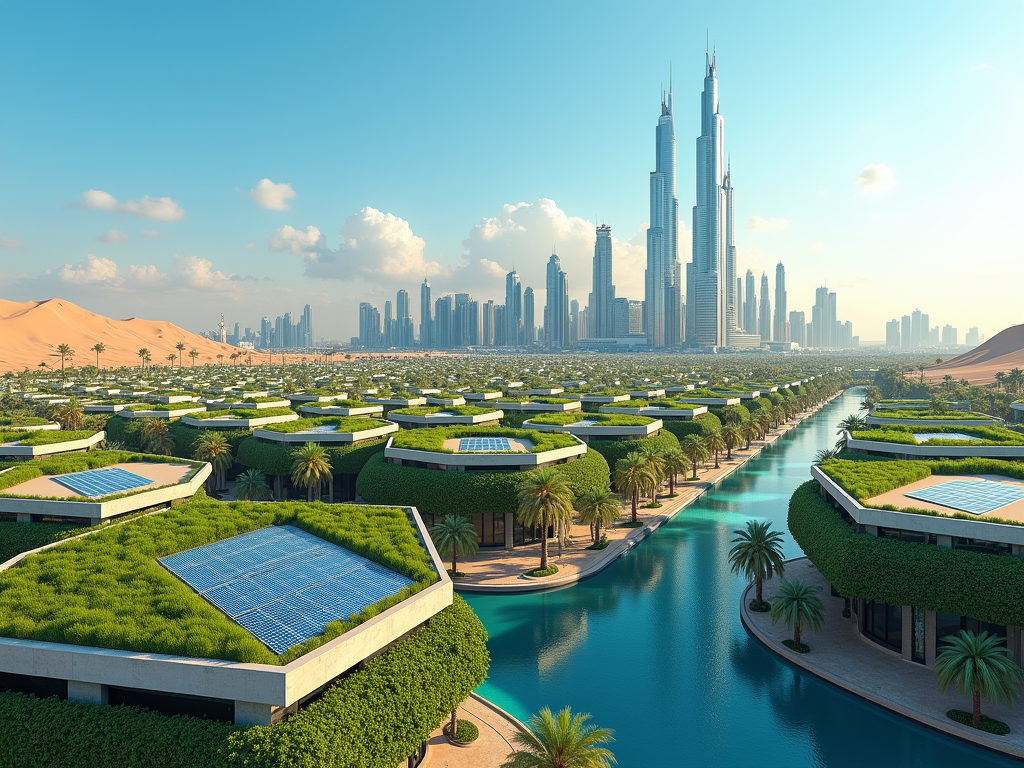Dubai is rapidly becoming a global leader in fostering a sustainable business environment through innovative policies and strategic initiatives. The emirate recognizes the urgency of sustainability in the face of climate change and is actively integrating eco-friendly practices into its economic framework. By doing so, Dubai aims to create a resilient economy that not only supports business growth but also safeguards the planet for future generations. This article explores the various ways in which Dubai is cultivating a greener business ecosystem and the importance of sustainability in its long-term vision.
Government Initiatives Promoting Sustainability

The Dubai government has committed to a multitude of initiatives aimed at promoting sustainability among businesses. These government policies not only incentivize eco-friendly practices but also set clear guidelines for industries to follow. Some of the key initiatives include:
- Dubai Clean Energy Strategy 2050: This ambitious plan aims to provide 75% of Dubai’s energy from clean sources by 2050.
- Green Building Regulations: Mandatory standards for new constructions to ensure energy efficiency and sustainability.
- Dubai Sustainable Finance Framework: Encouraging financial institutions to support green projects.
- Waste Management Initiatives: Programs aimed at reducing waste and promoting recycling among businesses.
- Smart City Projects: Integrating technology that enhances both urban living and environmental sustainability.
Through these forward-thinking initiatives, the government actively collaborates with private sectors, NGOs, and international organizations to maximize the impact of its sustainability agenda.
The Role of Public-Private Partnerships

Public-private partnerships (PPPs) play a crucial role in enhancing the sustainability of Dubai’s business environment. By fostering collaboration between governmental entities and private firms, PPPs effectively leverage resources, expertise, and technology for sustainable development. These collaborations focus on various sectors, such as renewable energy, transportation, and waste management.
Notable examples include:
- The establishment of solar energy projects, where private firms provide technological innovations while the government facilitates project approvals and entry.
- Joint ventures in creating sustainable transport systems that align with Dubai’s vision for an environmentally friendly public transportation network.
- Collaborations aimed at promoting eco-friendly tourism, balancing economic growth with environmental conservation.
Overall, PPPs are transforming Dubai into a model for how cooperation between the public and private sectors can drive sustainable business practices forward.
Investments in Green Technology and Innovation
One of the cornerstones of Dubai’s approach to sustainability is its significant investment in green technology and innovative solutions. The emirate recognizes that advancements in technology play a vital role in achieving sustainability goals and driving economic growth. Various initiatives encourage research, development, and the adoption of environmentally-friendly technologies.
Key investments include:
- Innovation Hubs: Centers focused on researching new technologies aimed at improving energy efficiency and reducing carbon footprints.
- Funding for Startups: Financial support for startups that develop green technologies and sustainable business models.
- Public Competitions: Initiatives that challenge innovators to come up with solutions that address specific sustainability issues.
- Partnerships with Universities: Collaborations that foster knowledge exchange and enhance the education of future leaders in sustainability.
- Technology Transfer Agreements: Partnerships that enable the local adoption of cutting-edge sustainable technologies from other countries.
By prioritizing investments in green technology, Dubai not only bolsters its economic standing but also enhances its reputation as a forward-thinking global business hub.
Promoting Corporate Social Responsibility (CSR) Practices
In order to encourage a culture of sustainability, Dubai promotes Corporate Social Responsibility (CSR) practices across various industries. Businesses are increasingly recognizing that adopting CSR initiatives leads to long-term benefits, including enhanced reputation, customer loyalty, and operational efficiencies.
Some CSR activities that companies in Dubai are engaging in include:
- Implementing energy-efficient practices and renewable energy sources in their operations.
- Engaging in community service projects that promote environmental awareness.
- Conducting sustainability reporting and transparently communicating their efforts to stakeholders.
- Offering employee training programs focused on sustainable practices.
- Investing in local environmental conservation efforts and sustainable community development.
Through these initiatives, companies in Dubai not only contribute to the social good but also position themselves as responsible corporate citizens in the competitive marketplace.
Conclusion
Dubai is making tremendous strides in fostering a sustainable business environment by implementing robust policies, promoting public-private partnerships, investing in innovative technologies, and encouraging corporate social responsibility. These efforts not only contribute to a healthier planet but also reflect a forward-thinking approach to economic development. As Dubai continues to evolve, its commitment to sustainability will undoubtedly serve as a model for other cities aiming to achieve balance between economic growth and environmental preservation.
Frequently Asked Questions
1. What is Dubai’s Clean Energy Strategy?
Dubai’s Clean Energy Strategy aims to provide 75% of the emirate’s energy from clean sources by 2050, promoting sustainable energy practices across towns and businesses.
2. How does Dubai encourage green technology investments?
Dubai encourages investments in green technology through innovation hubs, funding for startups, and public competitions aimed at developing sustainable solutions.
3. What role do public-private partnerships play in sustainability?
PPPs facilitate collaboration between the government and private sector, allowing for shared resources, enhancing efficiency, and accelerating sustainability initiatives across various sectors.
4. Why is corporate social responsibility important in Dubai?
CSR is important as it fosters a culture of sustainability among businesses, enhances their reputation, and encourages them to engage positively with the community and the environment.
5. What are some examples of sustainable practices in Dubai businesses?
Examples include implementing energy-efficient operations, engaging in community service, and conducting sustainability reporting to transparently communicate their efforts and successes.
